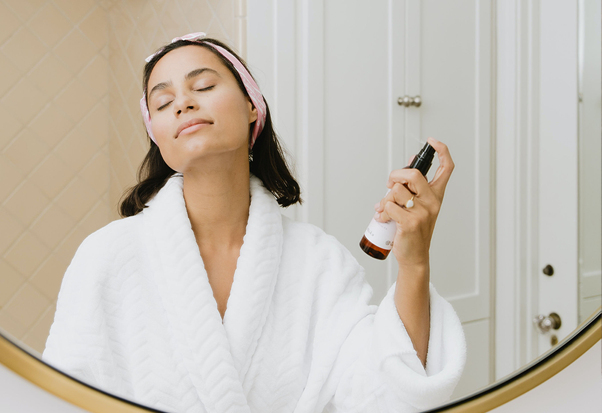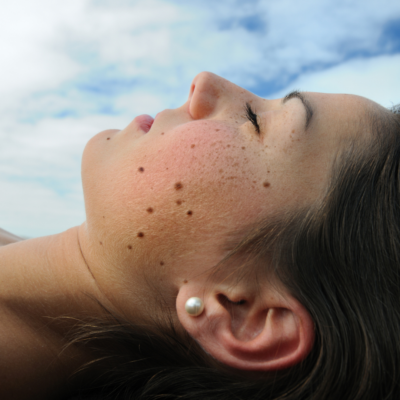
2020’s Scariest Skincare Hacks and What to Do Instead
Happy 2021! As 2020 rolled along, we noticed an uptick in TikTok and Instagram DIY skincare hacks—maybe all that time at home? While we’re all for DIY fun if it helps you take care of your skin, some of these hacks seem questionable. And a few seem downright scary.
As medical doctors, our credo is “First, do no harm.” With that in mind, here are a few skin hacks to delete along with safe, effective things to do instead.
Hyaluronic Acid Supplements
Hyaluronic acid can offer beneficial effects when applied topically to the skin’s surface. However, we doubt whether hyaluronic acid taken orally as a supplement offers any aesthetic value. For that to happen, the hyaluronic acid taken internally would have to be absorbed intact by your gastrointestinal tract and then somehow travel through the body to its intended location in your face to provide an anti-wrinkle effect.
Instead of wasting your money on ineffective supplements, for firmer and brighter skin, try a hydrating serum formulated with hyaluronic acid as its primary ingredient. Or, for a longer-lasting, smooth, supple complexion, consider trying one of the many excellent volume-building hyaluronic fillers available today.
Icing Your Skin
Ice is nice in your drink but not on your face. The claims say it reduces puffiness and makes your skin glow. However, putting ice or any kind of chemical cold pack—homemade or otherwise—directly on the skin can cause frostbite within minutes. Ice crystals can form in the skin’s cells, slowing blood flow and depriving the tissues of oxygen. As it progresses, this can cause permanent damage to your skin and underlying tissues. Never put anything from your freezer directly onto your skin.
For a cooling DIY beauty treatment, move an icepack from the freezer to the refrigerator for an hour before applying to your face—and wrap it in a towel. Another way to achieve radiant, glowing skin is with a professionally applied glycolic acid peel.
Fish Oil and Flaxseed Oil Supplements for Sun Protection
While there are some reports on fish oil and flaxseed oil offering sunburn protection, the research is limited and mostly sponsored by the companies that produce these supplements. You may think that claims made by supplement companies are regulated by the government. Not really. While claiming to cure disease is clearly prohibited, some supplement companies sidestep other rules and make unsubstantiated claims about preventing many conditions.
Given the risks of sun damage to your skin, which range from wrinkles and brown spots to lethal skin cancer, protect yourself externally from the sun’s damaging ultraviolet radiation. That means covering up with a broad-brimmed hat, protective clothing and always slathering on SPF 30 or higher sunscreen.
Hot Facial Steam
Boil water with fresh herbs on the stove, then throw a towel over your head as you let the steam moisten your skin and open your pores. What could go wrong? Try broken capillaries. Technically known as telangiectasias, these appear as spidery, red capillaries on the surface of the face around the nose and cheeks. Excessive heat can cause them. And the only way to get rid of them is to have a licensed professional laser them away.
Place a warm—not hot—and moist washcloth on your face for a few minutes. Same benefits. Less risk. Then, wash your skin with a mild cleanser and rinse with cool water for a fresh, dewy look.
Raw Egg White Facial Mask
Egg whites show up in many yummy sounding DIY facial mask recipes. Add honey and it sounds good enough to eat if a glob rolls towards your mouth. Don’t. Raw eggs can carry a type of pathogenic bacteria called salmonella. That includes the raw egg white in face mask recipes. If you apply it to your face and accidentally ingest any of it, there’s a possibility you could get food poisoning.
Instead, try a homemade face mask with yogurt as a base. You will get the same temporary tightening and exfoliating without the salmonella risk. Or, treat yourself to a professional mask such as California Skin Institute’s enzyme mask. You can rely on us to choose the right mask for you based on a careful assessment of your skin.
Aspirin as Acne Treatment
Yes, aspirin does contain a type of salicylic acid—acetylsalicylic acid—but it’s not the same as what’s in specially formulated skincare products. The type of salicylic acid found in aspirin can dry out your skin too much. Never a good idea. It can cause redness, inflammation or even a rebound effect which makes your skin produce even more oil to compensate for what is lost.
A better bet for the occasional zit is a professionally formulated salicylic acid-containing product. For serious acne, a more complete acne-controlling regimen and an appointment with a board-certified dermatologist may be in order. And possibly covered by your health insurance.



 / 291 Reviews
/ 291 Reviews